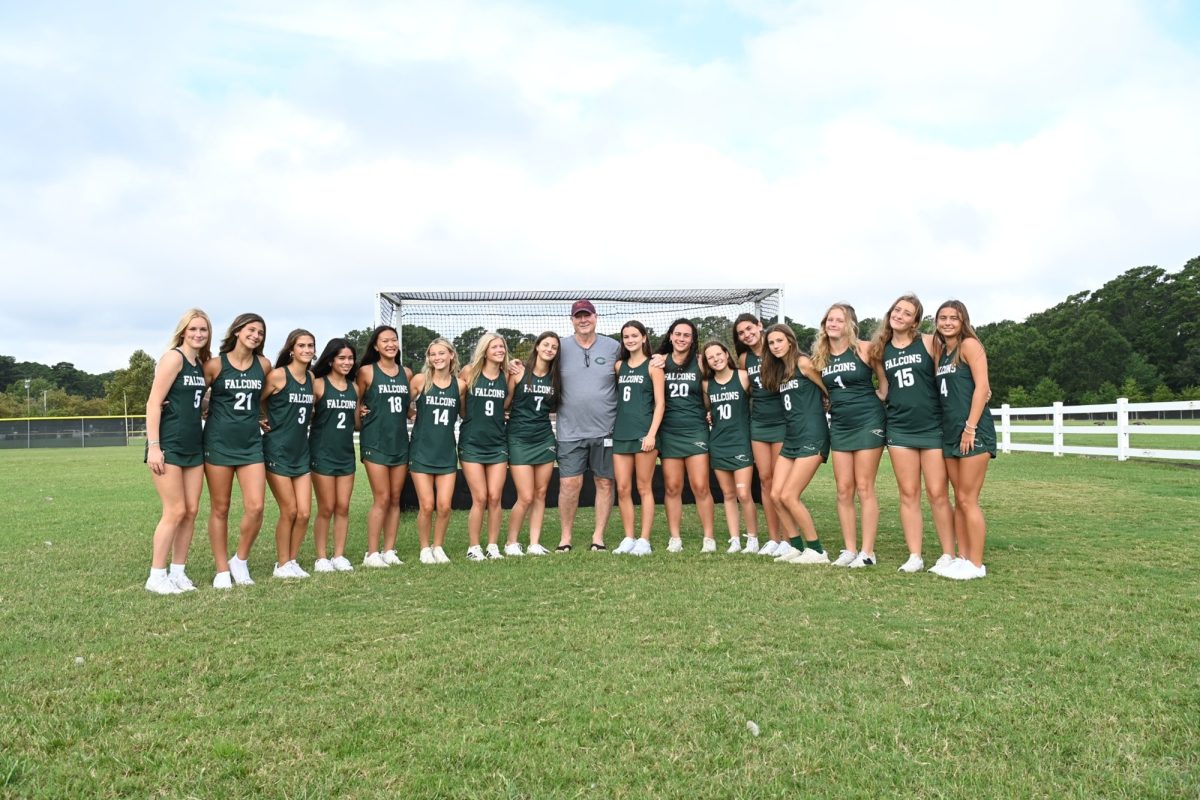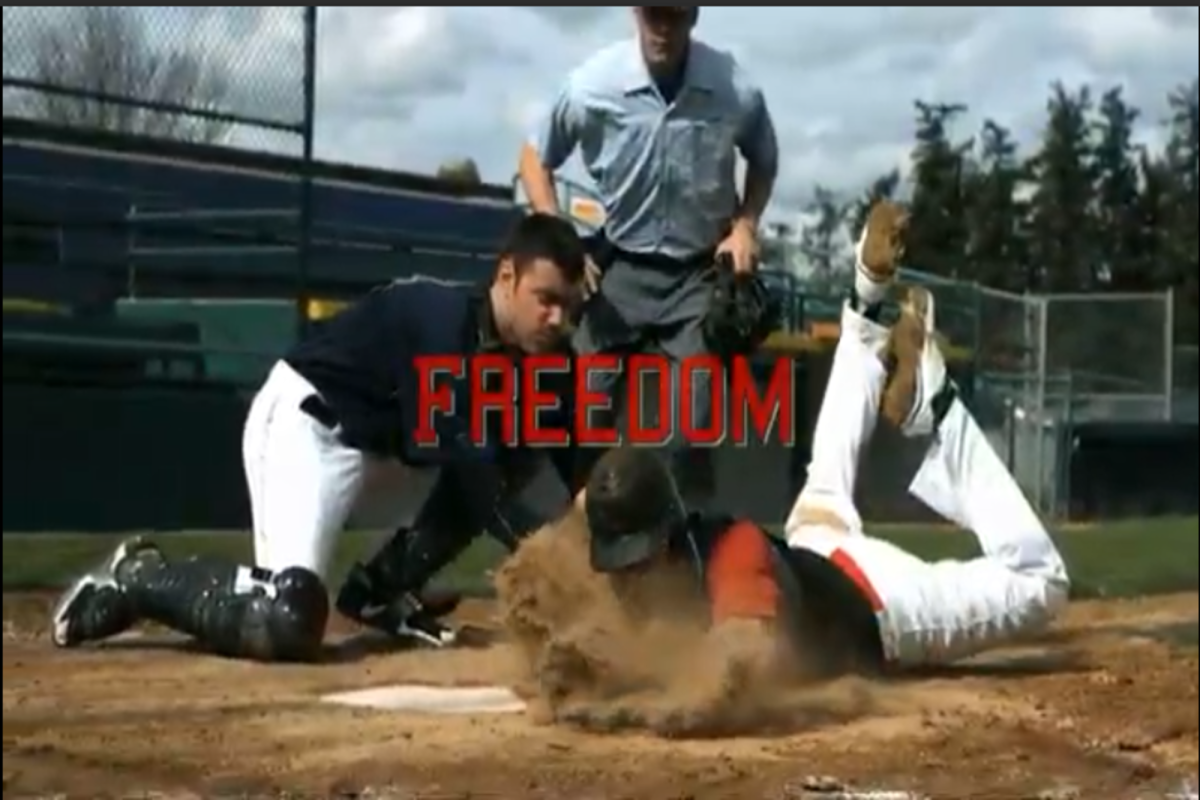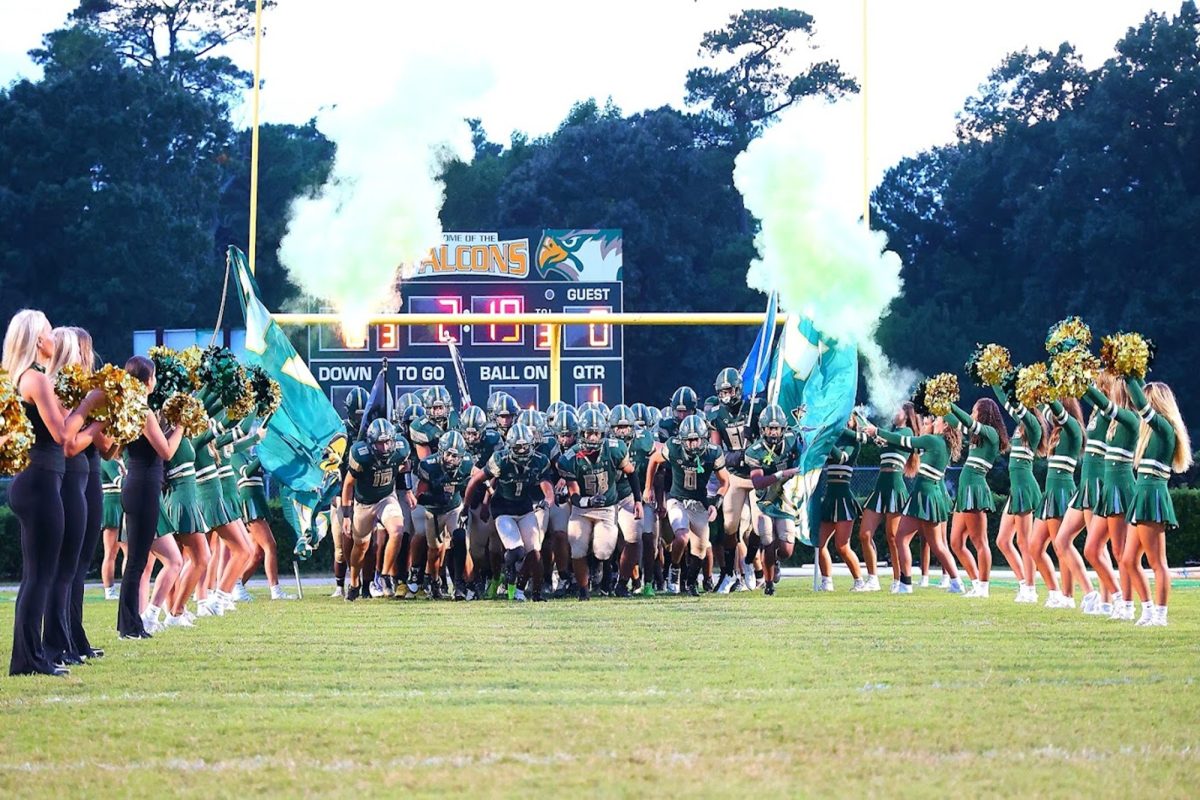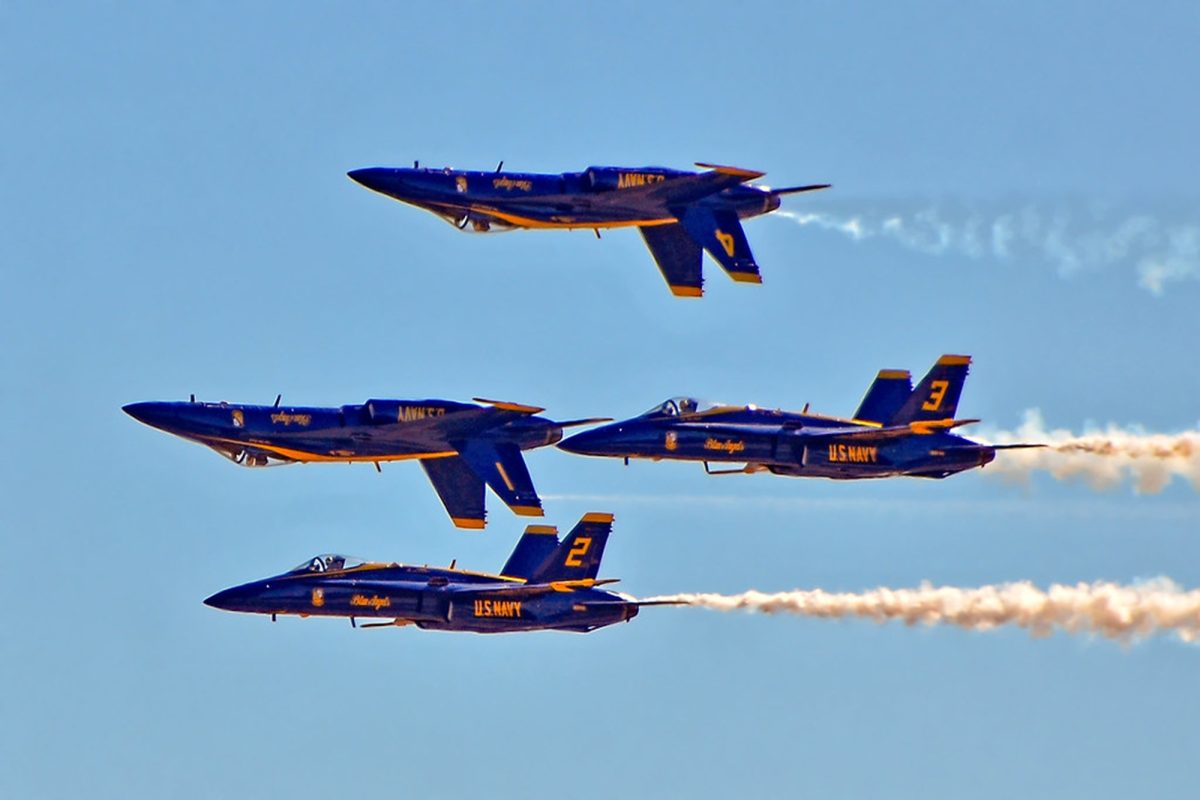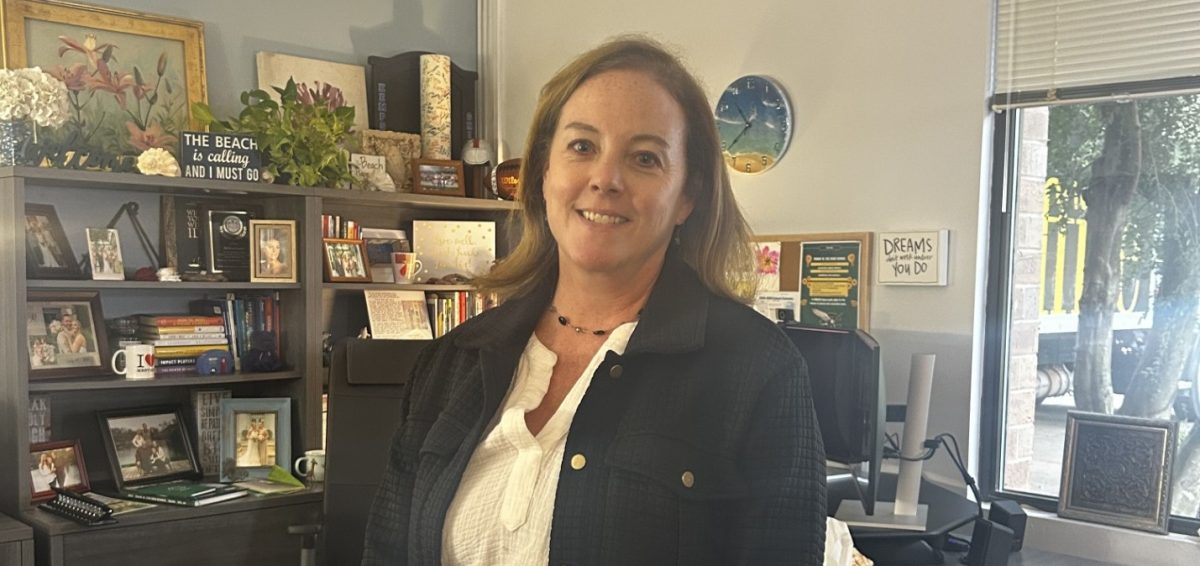The United States Navy phenoms, the Blue Angels recently performed at this year’s Naval Air Station (NAS) Oceana Air Show, and per usual, they did not disappoint.
This year’s theme was “50 Years of Women in Naval Aviation”, which seemed fitting in the fact that more women have become fighter pilots including, LT Amanda Lee, who pilots the left wing.
The day before the Blue Angels begin their string of performances, a media day is held at NAS Oceana that offers national, local and student media outlets to meet and interview the pilots on the tarmac, as well as get up close and personal to the F-18 fighter jets.
The opportunity to attend this year was offered to school yearbook Editor-in-Chief junior Sophia Shupert and Adviser Nicole Fratrick who had the opportunity to interview a few pilots and speak to a few of the skilled commanders.
CDR Alexander Armatas and LCDR Chris Kapuschansky were two of the commanders that spoke with reporters about the highs and lows of Naval Piloting, as well as their personal connections to the Navy and how they became involved.
According to Armatas, he is the Blue Angels flight leader and has a long history with the Navy that began at a young age after he saw some jets. It seems that he was bitten by the pilot bug, and it never went away. Now, as flight leader he oversees all of the pilots and makes sure that everyone is informed about certain tricks and formations they need to achieve; as well as making sure that flight practice is efficient and effective.
Both commanders highlighted the importance of teamwork, especially considering the massive crew of 143 team members that it takes to pull off all that makes up each air show; both agreed that giving back to the community and highlighting portions of the Navy’s capability was also important.
According to LCDR Kapuschansky, he acts as Armatas’ right wing and has had a connection with the Navy as his father was a naval officer and was able to watch the Blue Angels since he was a child. He grew up in Yorktown near Langley Air Force base where he was further exposed to pilots and planes, and felt that flying was his calling in life.
Armatas and Kapuschansky both agreed on the importance of cooperation and understanding one another in order to be successful, as well as whether a person is a pilot or involved in any skilled profession, one must dedicate oneself to the craft and work hard no matter what.

